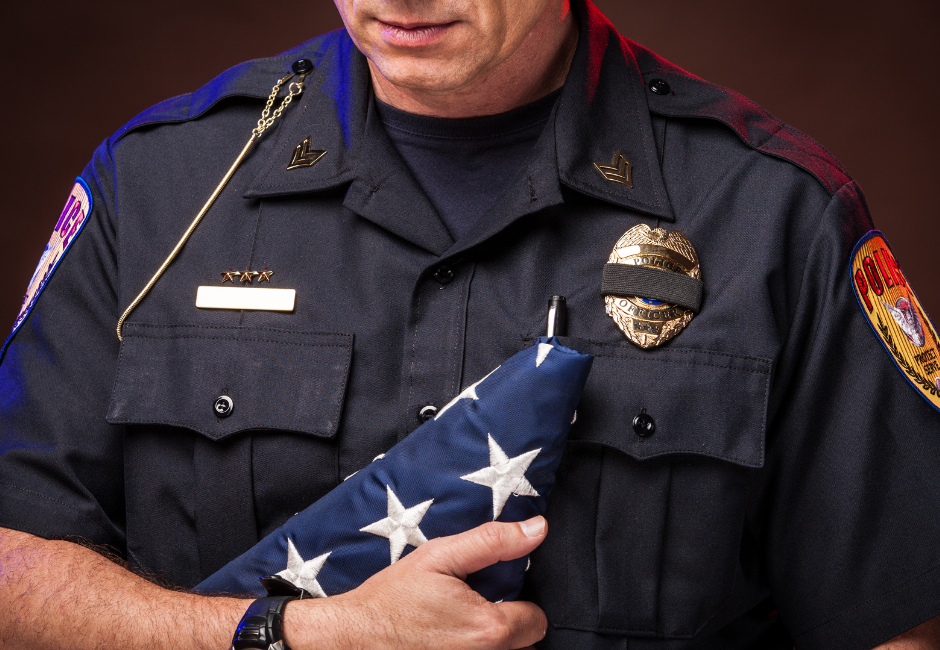The big picture: Law enforcement officers shouldn’t have to sacrifice their lives for public safety.
It was in 1962 that President John F. Kennedy established May 15th as Peace Officers Memorial Day. In his signed proclamation, he also designated the week of May 15th as National Police Week. Six decades later, we still come together as a country to honor officers who have made the ultimate sacrifice.
According to the National Law Enforcement Officers Memorial Fund (NLEOMF), in 2023, line-of-duty deaths decreased by 39% from 2022, a reduction partially attributable to COVID-19. While this number is inching forward in the right direction, there were still 136 federal, state, tribal, and local officers who died last year serving their communities.
Frankly, we wish we weren’t writing about this topic but following the recent tragedy in Charlotte, North Carolina, the daily dangers police officers face have once again surfaced in the national spotlight. Like many across America and the profession, our team mourns with the families, friends, and agencies who have experienced these tremendous losses.
In the days ahead, National Police Week will honor fallen officers and amplify the bravery of this noble profession, but this week shouldn’t be the only week we have these important conversations. In a few days, 282 officers killed in the line of duty, including those from 2023 and before, will be honored; their names added to the National Law Enforcement Officers Memorial in Washington, DC, and read aloud during the breathtaking Roll Call of Heroes.
Honoring the fallen: How NLEOMF prepares for and thinks about National Police Week.
Tune in as NPI’s Jim Burch and the National Law Enforcement Officers Memorial Fund’s Bill Alexander discuss the memorial, museum, and the significance of the days ahead. Listen in.
Rebuilding shattered lives: Concerns of Police Survivors Inc., helps families, friends, and agencies, of fallen officers move toward healing.
Concerns of Police Survivors Inc., (C.O.P.S.) is a nonprofit organization dedicated to helping those suffering the loss of an officer in the line of duty heal. With resources, hands-on programs, peer support, and more, C.O.P.S. steps in when agencies and families need support the most. Read more about their important work.
The bottom line: One law enforcement officer killed in the line of duty is one too many.
The price of public safety shouldn’t cost someone their life or their family the devastation of losing a loved one. As part of this issue, we are sharing resources we hope can help prevent tragedy, and others we hope are never used but exist to support families and coworkers in unthinkable times. Importantly, we hope this issue provided value to your understanding of the significance of National Police Week and the incredible organizations that exist to serve when those across the police profession need them most. Additional resources include:
- Public Safety Officers’ Benefits Program: The Department of Justice offers death and education benefits to survivors of fallen police officers. This program also provides disability benefits to officers severely injured in the line of duty. Learn more.
- It’s ok to ask for help: Blue H.E.L.P. honors police officers who died by suicide and assists families suffering from the loss of a loved one. The organization offers stress training and a database of emotional, financial, and spiritual assistance for first responders.
- A hub of resources: The VALOR Program offers a suite of trainings, events, articles, posters, podcasts, webinars, and more, related to safety and wellness. With nearly 73,000 officers trained, VALOR is a go-to resource we are grateful exists.
- Safety through tactics: NLEOMF is equally committed to honoring the fallen as it is to providing tactical safety resources like policy recommendations, webinars, safety checklists, and more related to ballistic protection, scene safety, and trauma.
- Roadway safety is officer safety: NPI-operated National Law Enforcement Roadway Safety Program offers resources and training nationwide—both in-person and virtually—to prevent injury or fatality during roadway operations.
Never miss an issue of InFocus
Share



